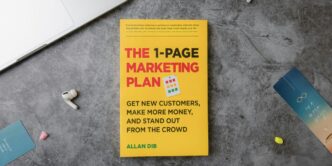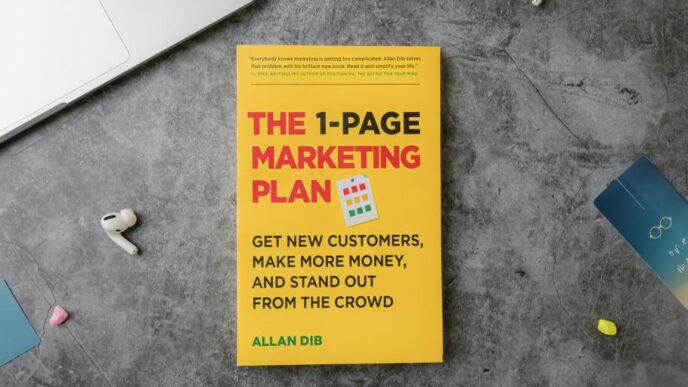In today’s fast-paced digital world, marketing agencies are venturing into uncharted territory. Traditional methods are being replaced by smarter, data-driven approaches, powered by Artificial Intelligence (AI), Big Data, and Machine Learning (ML). These cutting-edge technologies are transforming the way campaigns are created, audiences are targeted, and results are delivered. By shifting from guesswork to precise, personalized strategies, marketers are unlocking insights that help shape the future of their industry. AI, Big Data, and ML are no longer optional tools they’re becoming essential for agencies that want to push boundaries and stay competitive.
The Move Towards Smarter Marketing Solutions
The marketing world has always been fast-moving, but the speed of change in recent years has been extraordinary. With the rise of digital platforms and new ways to connect, brands are finding it harder than ever to make a meaningful impact. Today’s consumers are savvy they expect personalization, instant responses, and authenticity from the brands they engage with.
This evolving landscape has increased the pressure on marketing agencies to not only be creative but to also embrace data-driven, efficient strategies that deliver measurable results. That’s where AI, Big Data, and ML come in. These technologies enable agencies to process vast amounts of information, spot trends, predict future movements, and automate repetitive tasks.
AI: The Brain Power Behind Smarter Campaigns
Artificial Intelligence is no longer a thing of the future it’s here, reshaping the way marketing campaigns are developed and executed. AI can sift through enormous data sets, learning from consumer behavior and predicting trends that help marketers stay ahead of the curve.
One of the most important roles AI plays in marketing is personalization. AI algorithms can analyze a user’s browsing history, purchase behavior, and social media activity to tailor content, product suggestions, and recommendations. This level of personalization helps brands form deeper connections with their customers, boost engagement, and drive sales.
AI also improves ad efficiency. With real-time bidding systems like Google Ads or Facebook Ads, AI allows agencies to target the right audiences, manage budgets on the fly, and track performance instantly. This means agencies can make informed decisions about ad spending to maximize ROI.
AI-powered chatbots are also becoming popular, offering round-the-clock customer service. These tools answer questions, guide users, and improve over time through machine learning, which ultimately frees up human resources for more complex tasks.
Big Data: The Fuel Driving Modern Marketing
Behind every data-driven marketing success lies Big Data. Today, consumers leave behind digital breadcrumbs with every interaction, and marketing agencies have more information than ever before to tap into. However, without the right tools, this overwhelming amount of data can be impossible to make sense of. That’s where Big Data technology comes into play.
Big Data is all about turning huge amounts of consumer data like clicks, social media activity, and purchase history into useful insights. But it’s not just the sheer volume of data that matters; it’s how agencies use it. Big Data helps predict consumer behavior, optimize content strategies, and improve audience segmentation.
Predictive analytics, powered by Big Data, allows agencies to forecast customer needs and behaviors, so they can deliver campaigns that hit the mark in real-time. By analyzing past performance, agencies can also determine which types of content whether blog posts, videos, or social media updates perform best with different segments. This makes every piece of content more impactful and relevant, boosting engagement and conversions.
Big Data also helps agencies create more specific audience groups based on a range of factors, from demographics to real-time location. This hyper-targeted marketing ensures messages are relevant and increases the chances of conversion.
Machine Learning: The Engine of Continuous Improvement
Machine Learning takes AI and Big Data to the next level by allowing systems to improve automatically based on data, without needing specific instructions. This technology is changing the way marketing agencies approach campaign optimization, helping them continually refine strategies based on real-time insights.
For example, ML algorithms can monitor the performance of digital ads in real-time and make adjustments to better target audiences or change messaging. This level of automation means campaigns are always optimized for peak performance, with minimal human intervention.
ML’s ability to predict customer behaviors is also transforming marketing. By analyzing past data, ML models can predict what customers are likely to buy next or how long they’ll stay loyal. This lets agencies tailor their marketing strategies in advance, rather than simply reacting to trends.
Content recommendation engines also benefit from ML, particularly on e-commerce and entertainment platforms. These systems suggest products or services based on past user behavior, offering a personalized experience that leads to higher conversions. Platforms like Amazon and Netflix already use this technology to great success.
The Future of Marketing: Human Creativity Meets AI Precision
As marketing agencies continue to embrace AI, Big Data, and Machine Learning, the future will be shaped by a mix of human creativity and technological precision. While AI and ML can analyze massive amounts of data quickly and accurately, human marketers still play a key role in crafting compelling stories and building emotional connections with audiences.
In the years ahead, we can expect even more advanced AI tools to enter the marketing space, from highly personalized ad platforms to fully automated customer service systems. The most successful agencies will be those that find the right balance between technology and human insight, using AI and ML for heavy data lifting while focusing on the creative aspects that drive emotional engagement.
Conclusion
The marketing industry is undergoing a significant transformation, with AI, Big Data, and Machine Learning leading the charge. These technologies enable smarter, more efficient marketing solutions, from personalized content to predictive analytics and real-time campaign optimization. The agencies that blend human creativity with AI’s precision will be the ones to thrive, delivering cutting-edge solutions that captivate consumers and drive results.













